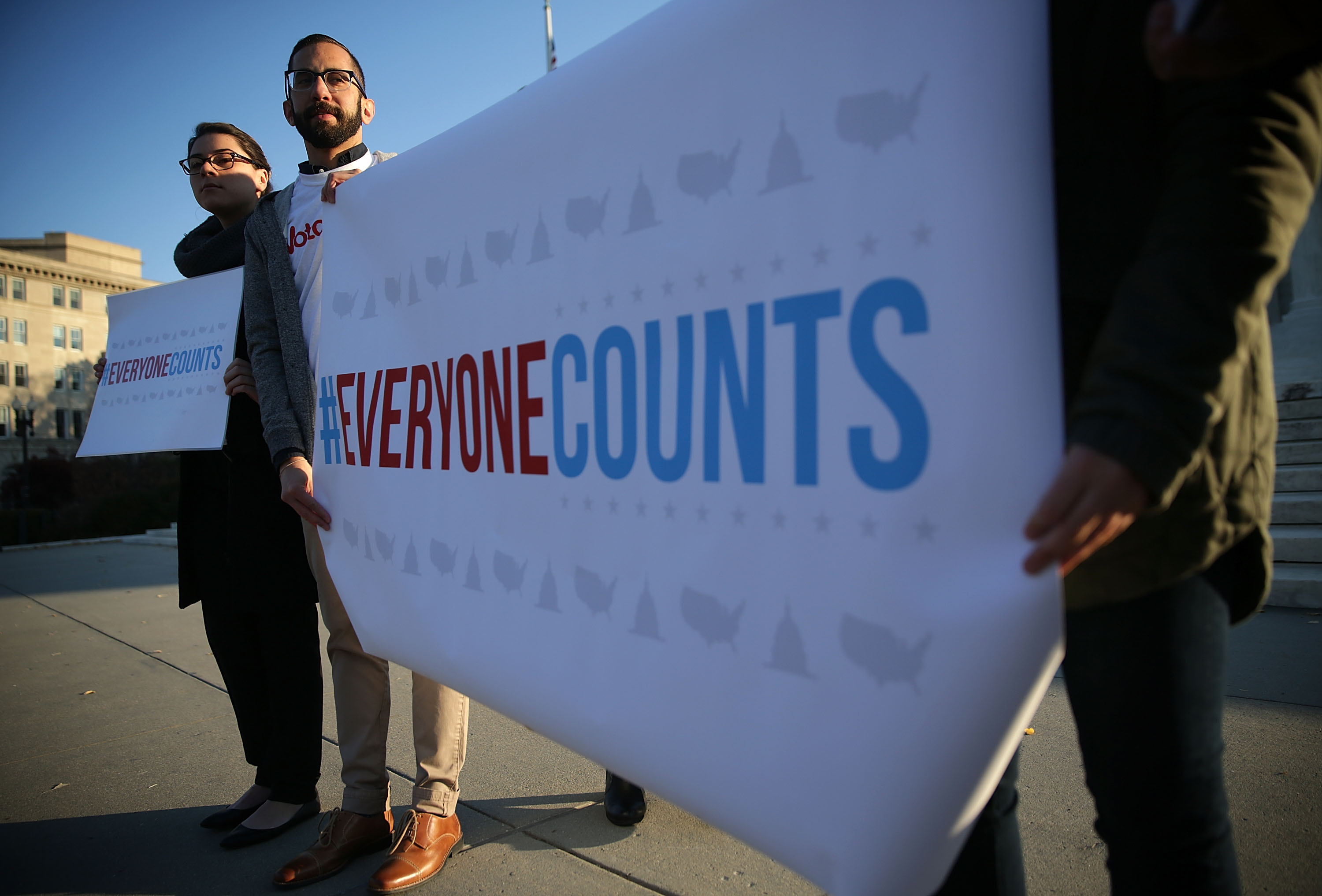SCOTUS Just Heard 2 Cases That Could Redefine Voting Rights in America

The United States Constitution requires that—at the federal level—representation in the House of Representatives must be based on the number of people living in each district. It’s a principle referred to as “one person, one vote.” And in 1964’s Reynolds v. Sims, the Supreme Court ruled that state legislative districts must follow the same doctrine. But yesterday (December 8), SCOTUS heard arguments in two cases that challenge that guiding standard.
In Harris v. Arizona Independent Redistricting Commission, a group of Arizona voters pushed back against the commission’s state legislative maps, arguing that the commission violated the principle and assigned a disproportionate amount of the population to Republican-leaning districts.
In Evenwel v. Abbott, Texas State Republican Executive Committee member Sue Evenwel and others argued that the spirit of the doctrine is to count only eligible voters—not every person in each district. If the court agrees, children, most people who are currently incarcerated for a felony, many formerly incarcerated people, and both documented and undocumented immigrants would not be included in the headcount when states draw their voting districts.
Experts say a move to divide districts on the basis of eligible voters would potentially give more weight to rural votes, shifting power away from urban areas and boosting the Republican party at the state level. It would also necessitate time consuming, costly redistricting across the country.
Civil rights advocacy groups, including the NAACP, National Action Network and the National Coalition on Black Civic Participation, joined with the National Black Caucus of State Legislators and the National Organization of Black Elected Legislative Women to detail the harm they argue would come with a SCOTUS change to the “one person, one vote” principle.
“When election districts are apportioned on the basis of anything less than the total population of each district, the fundamental underpinnings of our representative government are compromised,” Cornell William Brooks, president and CEO of the NAACP, said in a statement sent to Colorlines. “In an era where governments have been making it harder to vote, we must ensure that elected leaders are accountable to all their constituents—not simply those who happen to satisfy the requirements for voting eligibility.”
The court is expected to make a decision by June 2016.
